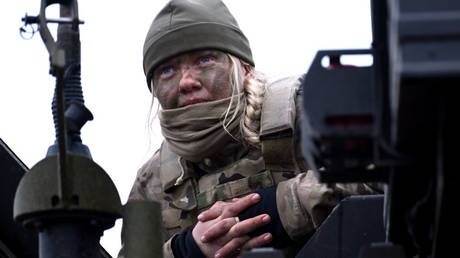Denmark is considering implementing women’s conscription in its military, following other Scandinavian countries’ lead. Prime Minister Mette Frederiksen announced the proposal in Copenhagen, stating that it aims to achieve gender equality and prevent conflicts rather than promote war. This move comes amid the ongoing Russia-Ukraine conflict and reflects a broader trend in European countries towards gender-inclusive military service.
Denmark’s military comprises approximately 13,700 troops, with 9,000 professional soldiers and 4,700 conscripts in training. The government, led by Prime Minister Frederiksen, intends to raise the number of conscripts to 5,000 and extend compulsory service to both men and women.
Join us on Telegram: https://t.me/tfiglobal
Presently, Danish law mandates that all fit men undergo around four months of military training. However, not all men serve due to volunteer enlistment, with women constituting about 25% of the 4,700 short-term forces.
Plans are underway to introduce a new conscription law in 2025, with implementation scheduled for 2026. The newly trained troops will undergo five months of training, followed by six months of active service.
Read More: Why Macron is SECRETLY SCARED of Ukraine
Danish Defense Minister Troels Lund Poulsen highlighted the increasingly serious security situation in the region, necessitating a more inclusive recruitment approach that includes all genders. Foreign Minister Lars Lokke Rasmussen noted that while Russia isn’t currently seen as a direct threat, Denmark remains vigilant to safeguard its security interests.
Sweden started conscripting both men and women in 2017. Norway became the first NATO member to enforce compulsory military service on women four years prior.
Read More: Estonia’s Kaja Kallas will avenge Macron’s humiliation (by neutralizing Russia)
Prime Minister Frederiksen advocates for bolstering defenses in European nations to discourage Russian aggression. In a recent interview with the Financial Times, she stressed the importance of being able to defend oneself, noting that freedom comes with a cost.
Russian President Vladimir Putin has reiterated Moscow’s lack of interest in attacking NATO countries or escalating the Ukraine crisis into a broader conflict.







